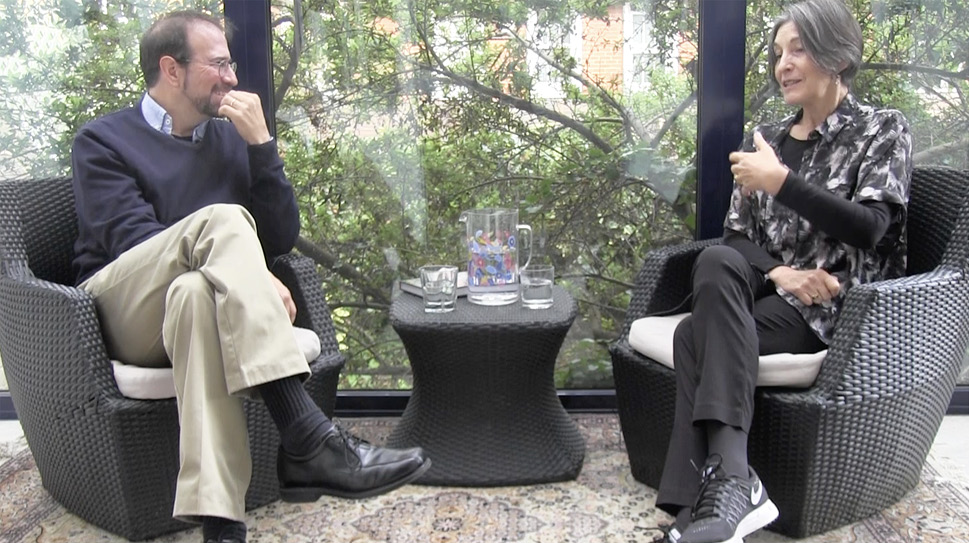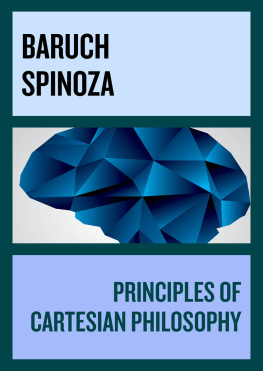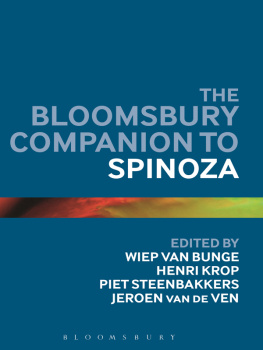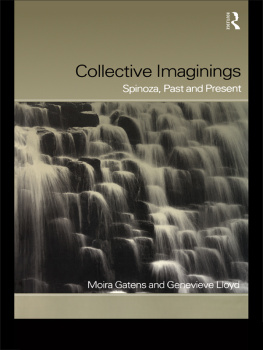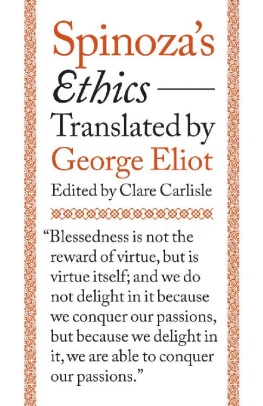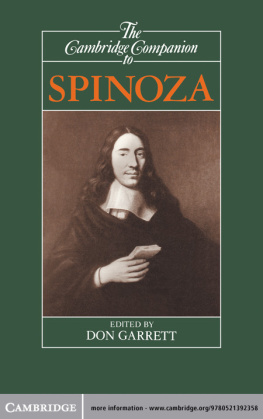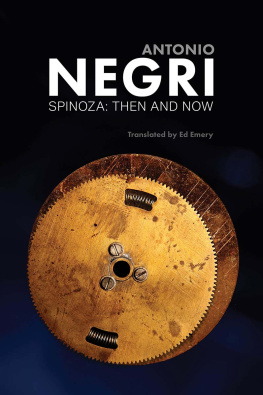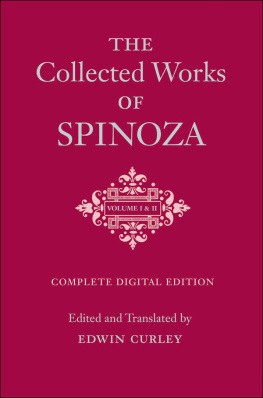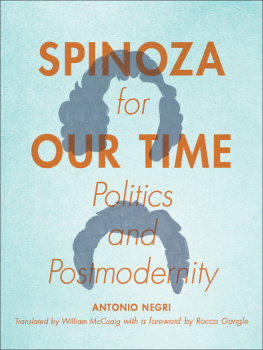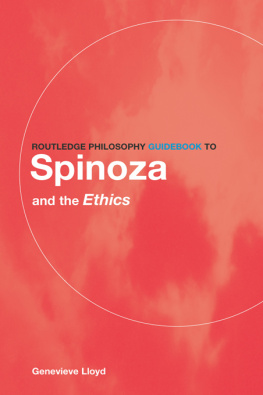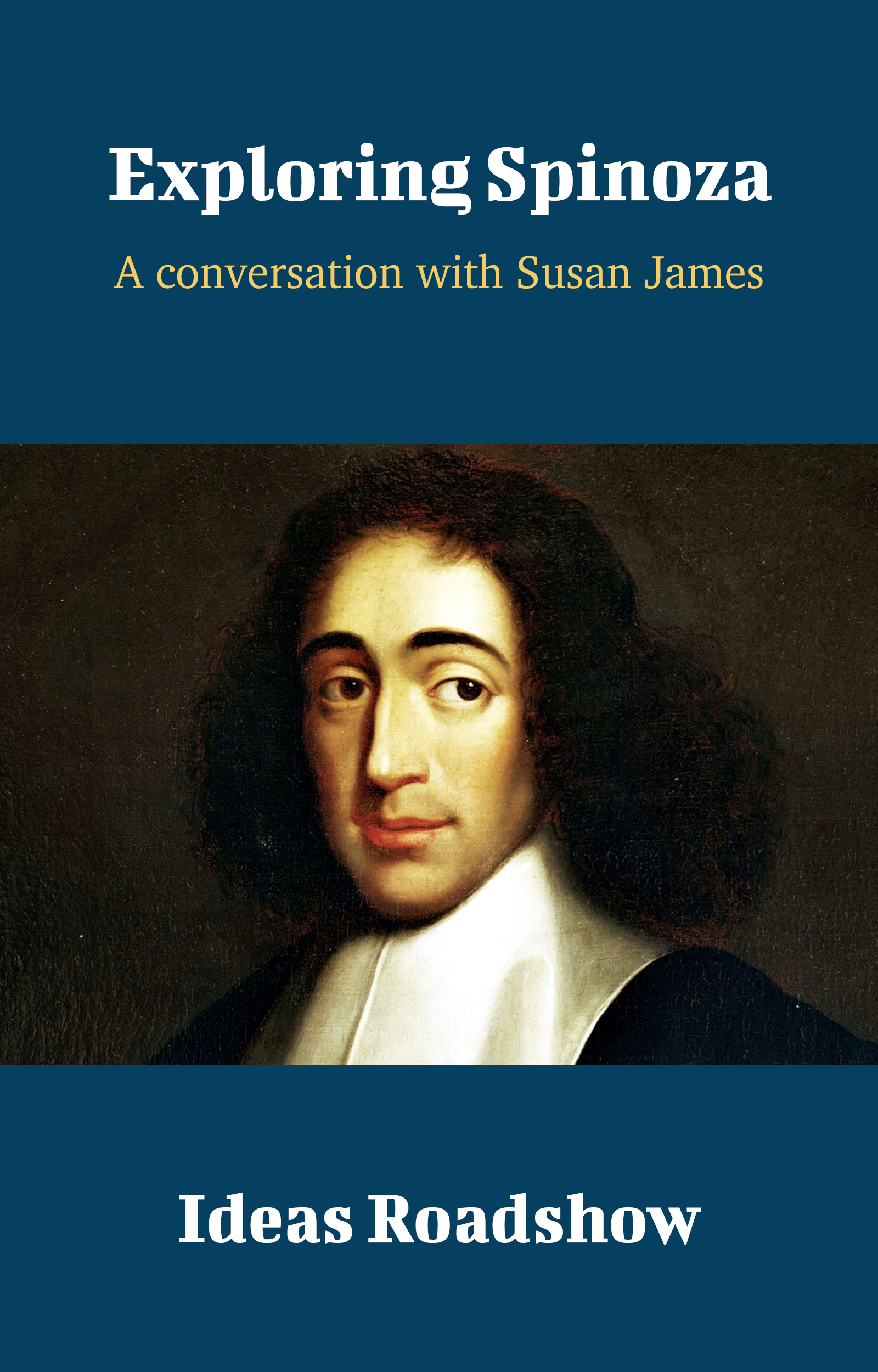The contents of this book are based upon a filmed conversation between Howard Burton and Susan James in London, England, on October 21, 2016.
Introduction
The Rational Humanist
The appeal of Spinoza, the influential 17th-century philosopher, seems remarkably persistent. Long a favourite of theoretical physicists with his explicit identification of God and nature in a way particularly conducive to those explicitly seeking a theory of everythingEinstein famously declared that he believed in the God of Spinozahe has most recently been identified by the celebrated Jonathan Israel as nothing less than the focal point and de facto originator of the uncompromisingly rationalist strain of Enlightenment thought, the so-called Radical Enlightenment that, interwoven with more moderate Enlightenment strains, culminated in the French Revolution.
Spinozas undiminished influence is particularly surprising given his propensity to express his thoughts in a rigorous mathematical format, with his Ethics, his magnum opus that is written in an explicitly mathematical style, regarded by even specialists as so densely framed as to require years of careful study to fully grasp its meaning.
And then there is his character and lifestyle. Often viewed as a double exile, a Jew in the Calvinist United Provinces who was excommunicated from the Jewish community in his early 20s, he lived a famously ascetic existence, grinding optical lenses in various rented abodes between The Hague and Amsterdam in order to give himself the means to freely philosophize and pen his revolutionary and deeply iconoclastic ideas.
That such a philosopher has come to represent the epitome of the independent freethinker, wilfully liberated from the shackles of public opinion in order to tell it like it is is not particularly surprising, just as the notion that someone who adopted a rigid geometrical framework to discuss moral and ethical issues by invoking propositions, proofs, expositions and scholia would be viewed by many as the ultimate rationalist.
But what is unquestionably startling is that the very same fiercely independent and often solitary philosopher could also, in time, become the poster boy for the merits of human sociability, consistently influencing modern notions of political freedom, community actions, environmental issues and more.
To understand how, exactly, such a development is possible, we turn to Birkbeck, University of London philosopher Susan James, an internationally-recognized Spinoza scholar and author of Spinoza on Philosophy, Religion and Politics and Spinoza on Learning to Live Together.
Spinoza advocates a kind of pluralist mode of philosophical life which is very much focused on sociability. I think that he believes that you cant really come to understand the world on your own, youve got to understand it in a community; and that the larger, more cohesive, more peaceful and more creative the community, the better.
The philosophical project, if you like, is in part to create such a state. And thats interesting, I think: that kind of reading of philosophy as a fundamentally social project.
Many of these views are explicitly expressed in one of only two works Spinoza published in his lifetime (albeit under a pseudonym), the Tractatus Theologico-Politicus, commonly referred to as simply the TTP, which was not, as it happens, written in this dry, formal mathematical style. Deliberately so.
The TTP is not, strictly speaking, a work of philosophy. Its written for a different kind of audience, a much broader audience of educated but ordinary people.
The point of the book, he says, is to show that the freedom to philosophize and the freedom to pursue your own religious views are not only compatible with the security of the state, but are, in fact, conditions of the security of the state.
And suddenly, its no longer such a stretch to see how this ultra-rationalist had so many interesting and influential things to say about political freedom, religious plurality and freedom of speech.
But what about all that other stuff?
He thinks of philosophical understanding as collectively becoming increasingly able to protect yourself against things that arbitrarily affect you and make you sad or unhappy. And society is obviously one of those forces: we try to organize ourselves so as to protect ourselves against sadness as much as possible.
But Spinoza is also interested in our relationship to the broader environment. The last section of the Ethics is all about how we livenot just in relation to each other, but in nature as a whole. And I think its an implication of his view that if we want to be free, one of the things we have to try to cope with is to organize our relationship to the environment in a way that doesnt interfere more than necessary with our sustainable happiness.
That seems to have very, very important implications for ecology and our attitude to climate change and the politics of that. So thats another area where hes extraordinarily fruitful, creative and unusual.
Notwithstanding his formal detachment from much of mainstream 17th-century Dutch societyan outcast from his religious community who holds no official title, status or academic positionSpinoza turns out to be particularly sensitive to human interactions and human sensitivity. He clearly developed a fiercely loyal group of friends and admirers (who diligently ensured that his works, many of which were published posthumously, were able to influence thinkers for centuries) and had a deep sensitivity to the strengths, and weaknesses, of the human condition.
Hes very interested in the idea that in order to really pursue understanding, you have to cultivate this virtue that he calls fortitudoa strength of mind we might say. Its not easy, but one of the things that society needs to do is to cultivate conditions in which people can become a bit more tough-minded, a bit more determined, a bit less lazy, a bit less easily scared, and so on. And thats what it is to have fortitudo. And unless we have that, he thinks, we just cant make philosophical progress, because philosophizing isnt easy.
No, its not. But it is, most certainly, very important.
The Conversation
